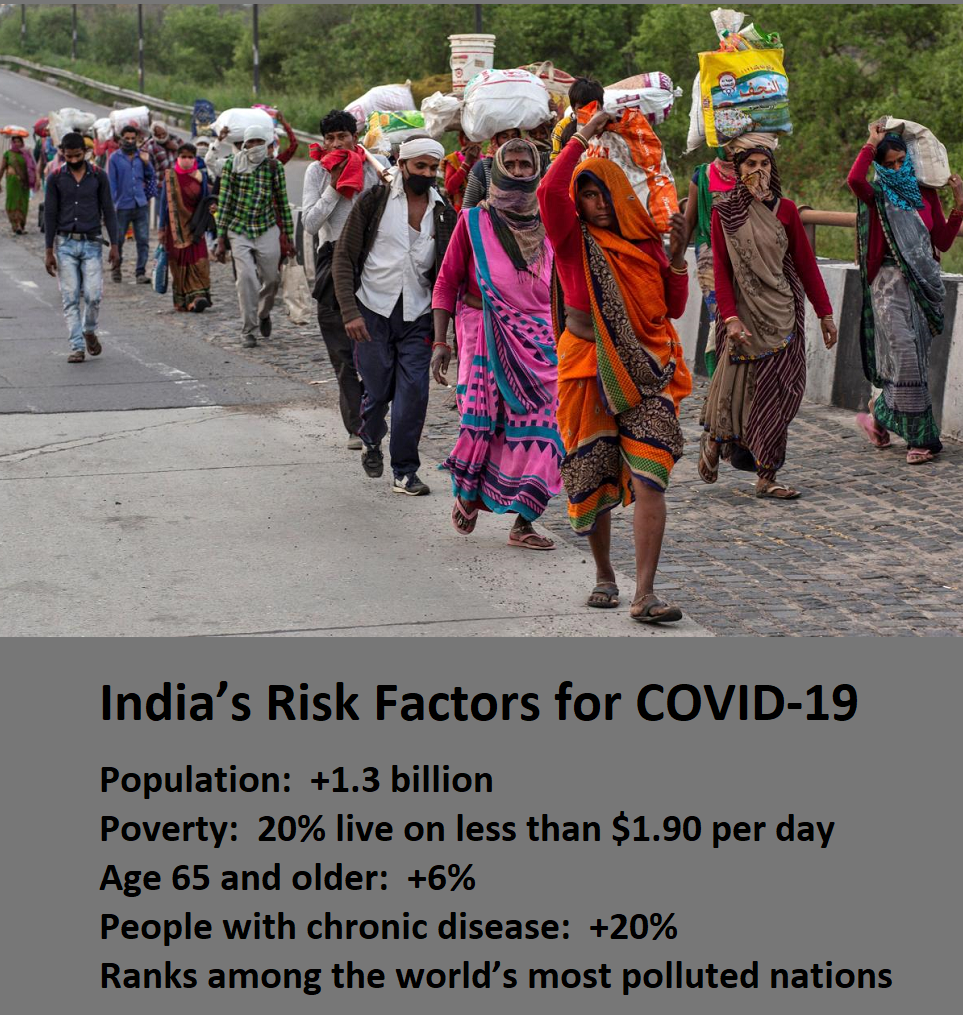India’s Tragic Pandemic Lockdown: BBC
India has more than 1.3 billion people, and about 20 percent live less than $2 per day. So after the government imposed a lockdown to top the spread of COVID-19, many Indians lacked shelter, food, savings or other protections. A government order turned most into refugees overnight, creating a humanitarian crisis and worsening the coronavirus threat. “Work and wages dried up after India declared a 21-day lockdown with four hours notice on the midnight of 24 March to prevent the spread of coronavirus,” reports Soutik Biswas for BBC News. Instead of sheltering in place, thousands crowded streets to leave cities and return to home villages. Biwas describes the experiences of desperate individuals and families forced to walk a hundred kilometers or more with few resources. “These informal workers are the backbone of the big city economy, constructing houses, cooking food, serving in eateries, delivering takeaways, cutting hair in salons, making automobiles, plumbing toilets and delivering newspapers, among other things. Escaping poverty in their villages, most of the estimated 100 million of them live in squalid housing in congested urban ghettos and aspire for upward mobility.” Some local governments are closing borders, with haphazard orders ensuring rapid spread of COVID-19. Belatedly, some local officials urged workers to stay in place and opened food distribution centers. – YaleGlobal
India’s Tragic Pandemic Lockdown: BBC
India’s rapid COVID-19 lockdown, closing transportation and jobs, triggered exodus of poor migrants from cities to home villages, risking widespread contagion
Tuesday, March 31, 2020
Read the article from BBC News about how India's lockdown triggered mass migration of poor from India's cities to rural villages, with few resources available along the way.
Soutik Biswas is India correspondent for BBC News.

BBC News
Copyright © 2020 BBC.